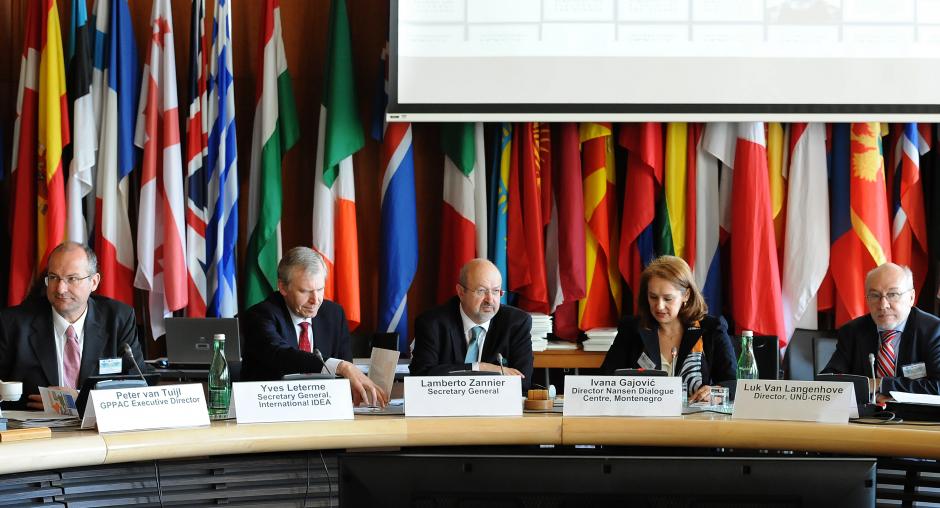UN, regional organizations, civil society join forces to address peace-building and support democracy

VIENNA, 30 April 2015 – Strengthening co-operation and co-ordination between the UN, regional organizations and civil society in responding to crises and peace-building is critical, experts concluded at a two-day, high-level international conference which closed today in Vienna. The conference, focusing on strengthening peace and security co-operation towards democracy and development, brought together some 60 experts and practitioners to discuss the root causes of conflicts in their regions, and their role in building strong and inclusive democratic institutions.
It was organized by International IDEA, the Organization for Security and Co-operation in Europe (OSCE), the Global Partnership for the Prevention of Armed Conflict (GPPAC), the UN University Institute on Comparative Regional Integration Studies (UNU-CRIS), and the Organization of American States (OAS).
It was highlighted that the UN Security Council needs support to respond quickly and effectively to every crisis situation. It was noted that regional organizations and civil society organizations often have the means and understanding to help prevent the root causes of conflict in their regions and to build strong and inclusive democratic institutions.
“We discussed the existing mechanisms and initiatives for co-operation between all the relevant organizations and civil society. We also identified concrete and forward-looking policy recommendations to enhance future co-operation within the implementation of the UN Post-2015 Development Agenda,” said International IDEA Secretary-General Yves Leterme.
GPPAC Executive Director Peter van Tuijl emphasized that the conference called for a greater focus at the regional level on building peace and sustainable development. “Increased collaboration between regional organizations and civil society will create room for local solutions to prevent conflict and promote development, and support a more effective role for the UN as a global organization,” said Tuijl.
UNU-CRIS Director Luk Van Langenhove said: “In spite of the UN’s outstanding commitment to maintaining global peace and security, it is high time that the burden of maintaining peace and security is shared at the global, regional and sub-regional level. At the turn of the last century, collaboration between the UN and regional organizations has started to flourish.”
OSCE Secretary General Lamberto Zannier said: “The OSCE has strived for close co-operation and co-ordination in areas ranging from mediation, dialogue facilitation, and protection of minorities, to capacity-building activities, electoral observation and humanitarian assistance. We aim for an efficient division of labor, complementarity and mutual support. Our response to the crisis in and around Ukraine provides an excellent example.”
The conference’s recommendations will be presented to the High-Level Thematic Debate of the UN General Assembly on “Strengthening Cooperation between the United Nations and Regional and Sub-regional organizations”, which will take place on 4 May 2015 at UN Headquarters in New York.
